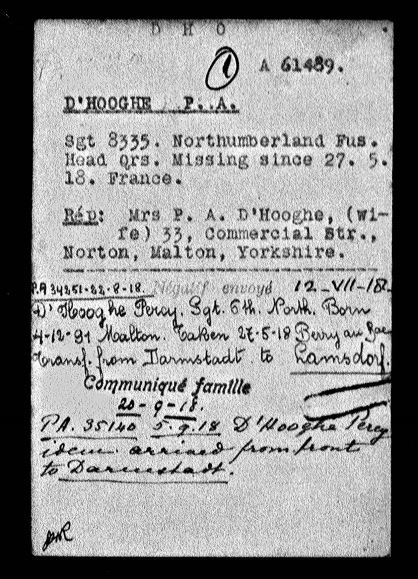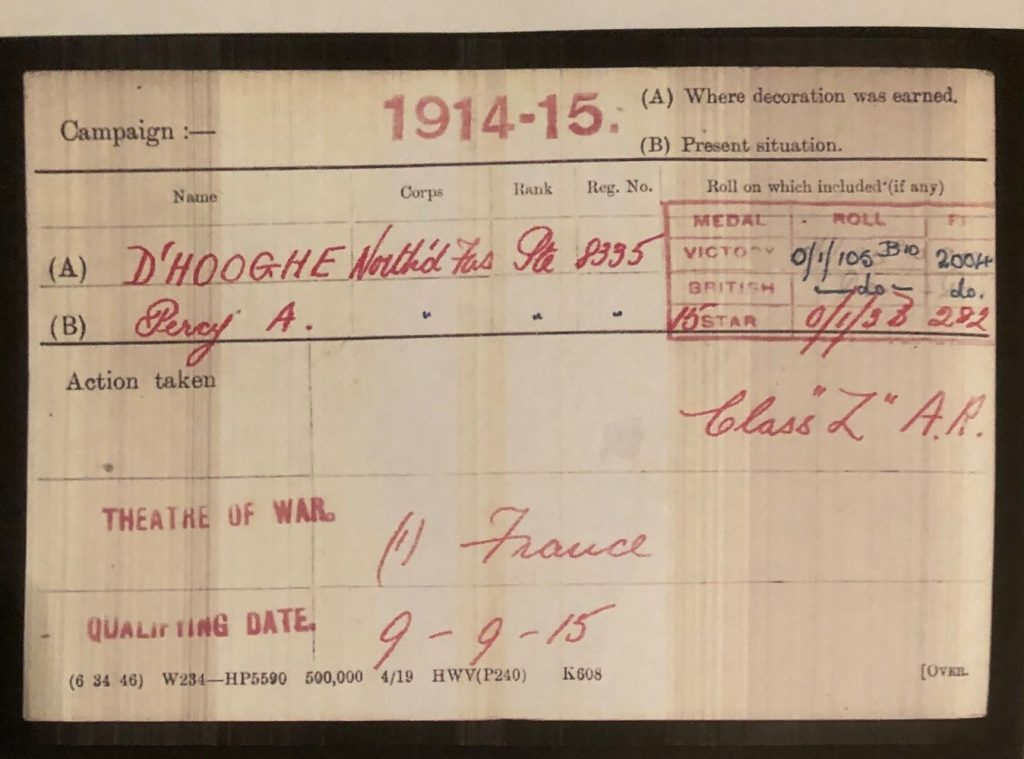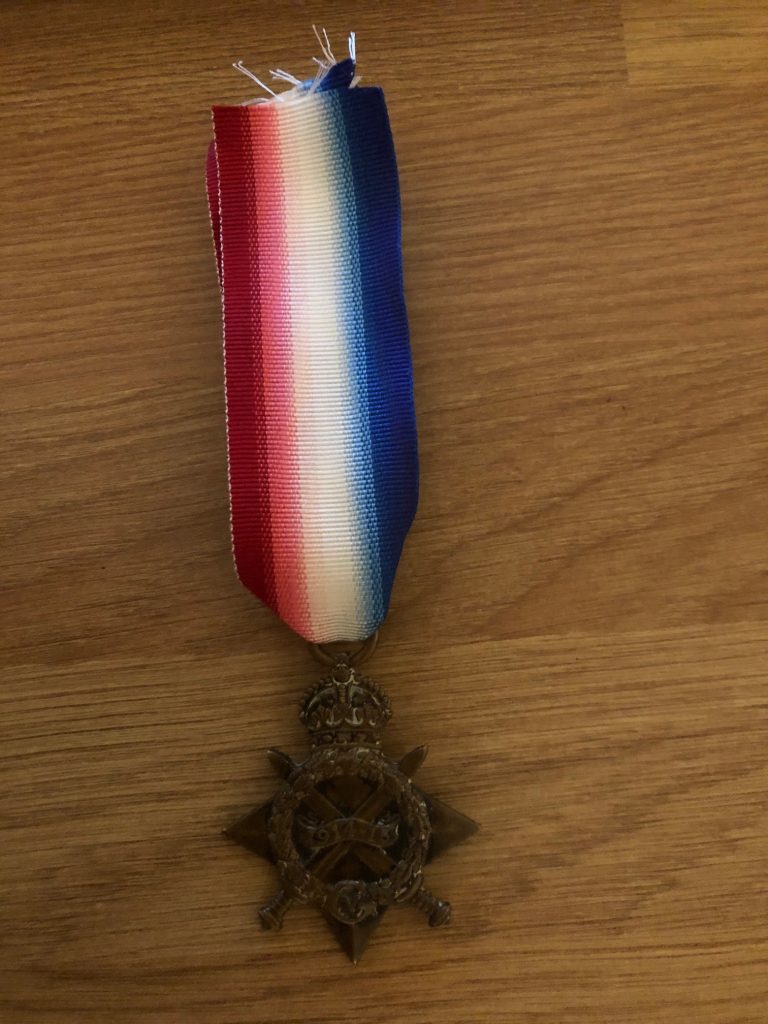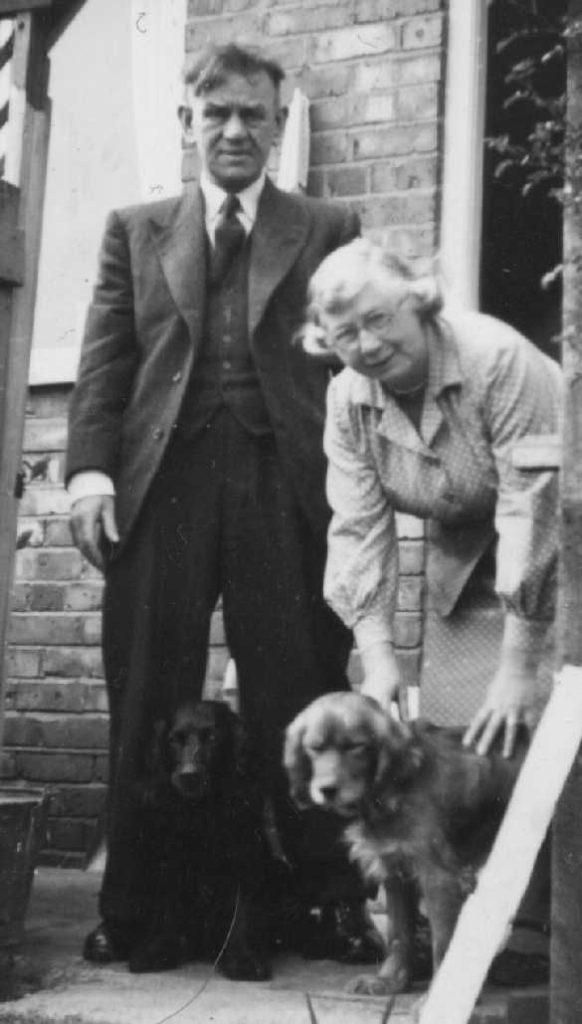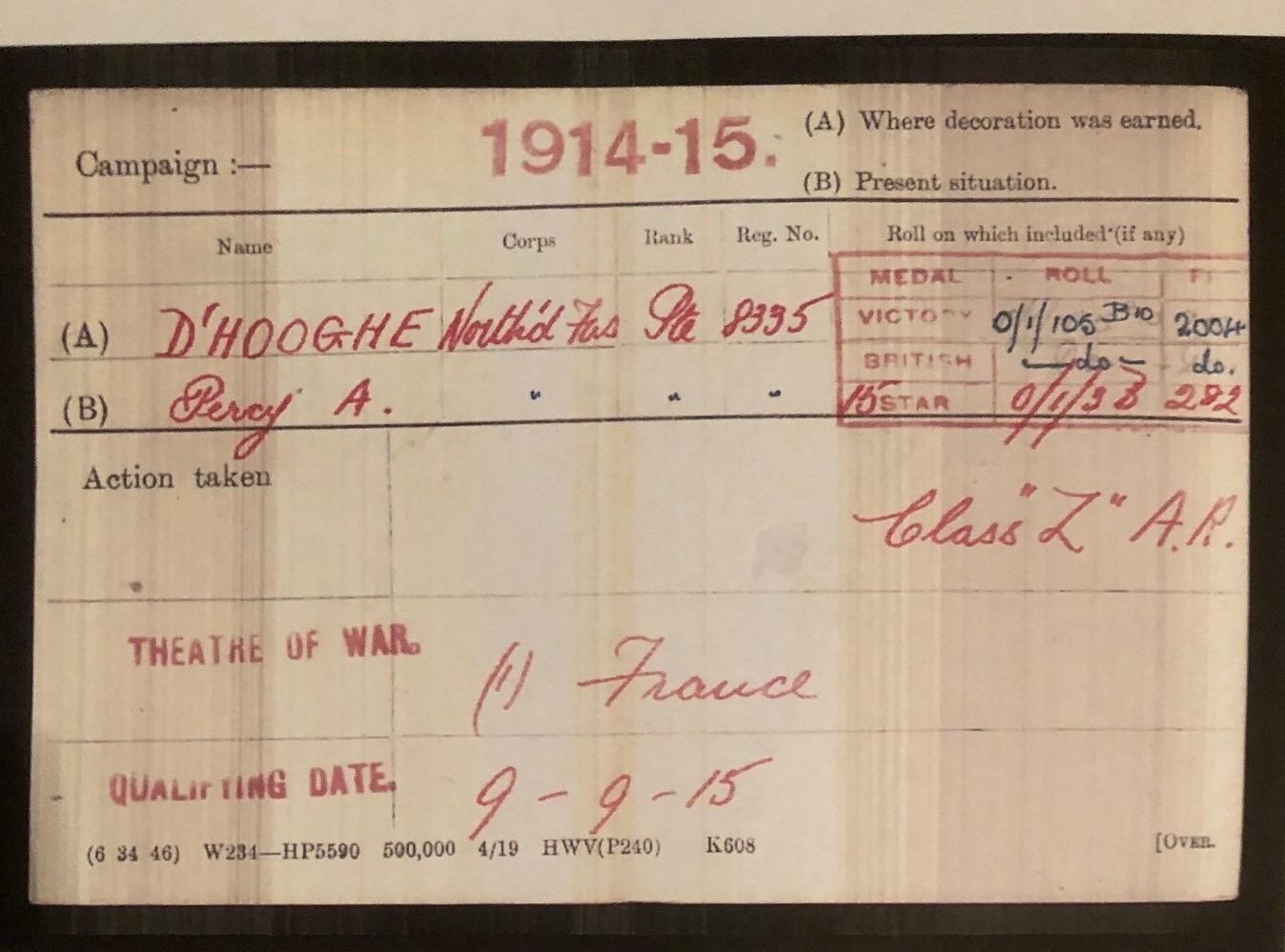Percy was born in 1892 and was the eldest son of William Henry Adolphus D’Hooghe, 1871-1964 and his wife Mary Ellen, nee Wright.
In the 1911 Census, Percy is living at home, 5 Scarborough Road, Malton, Yorkshire, with his parents and siblings, Lucy Ellen, Maurice Wright (Also served in WWI), Kathleen Annie and Sybil Ulrica. Percy is employed, like his father, by the North Eastern Railway Company.
What Army records survive, show that Percy enlisted, probably in late 1914 and he was posted to the 12th Battalion, Northumberland Fusiliers, a Kitchener New Army battalion founded in September 1914 in Newcastle.
The battalion was deemed ready for service in France and embarked in September 1915 as part of 62nd Infantry Brigade in 21st Division. Percy’s Medal Index Card (MIC) shows that he arrived in France on 9th September 1915.
Their baptism of fire was truly horrendous when on 26th September 1915, the division suffered 3,800 casualties at the Battle of Loos.
Without a surviving service record and with no reference to the award of a Silver War Badge, I can only conclude that Percy survived, miraculously, not only the battle of Loos but the first day on the Somme, 1st July 1916 in the 12th NF’s attack on Shelter Wood and later Somme actions at Mametz Wood, Flers-Courcelette, Morval and Le Transloy.
He then served during the German retreat to the Hindenburg Line in early 1917 and at the Battle of Arras in April/May 1917 followed by action at the Third Battle of Ypres at Polygon Wood, Broodseinde and the Second Battle of Passchendaele.
In August 1917, the 12th and 13th Battalions of the Northumberland Fusiliers had been amalgamated and it was in this format, that they were overrun and practically destroyed in the German Spring Offensive which opened on 21st March 1918. The battalion was defending Vaucelette Farm between Chapel hill and Epehy and stubbornly held out for more than two hours and again, I assume Percy survived to fight another day.
However, in further fighting on 27th May 1918, Percy was captured and made Prisoner of War near Berry au Bac having been transferred to a so called quiet sector.
Percy, by now a sergeant, appears to have been an extremely lucky man to have survived so much fighting without a serious wound and he returned to England at the war’s end.
Percy must have had periods of leave as the records show that he married Maude, nee Leefe in 1916 and the only photo that I have of Percy is with Maude in later life.
Some years ago, a medal dealer contacted me to say that he had Percy’s 1914/15 Star and I was very pleased to purchase it. He was also entitled to the British War Medal and the Victory Medal, but the whereabouts of those two medals are unknown.
Percy died in 1963 aged 71, a year before his father’s death in 1964 aged 93.
